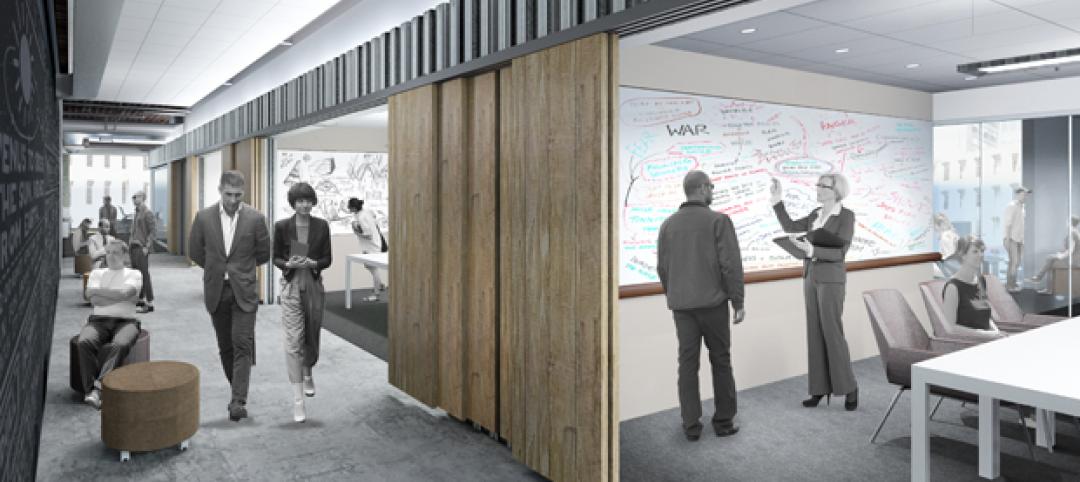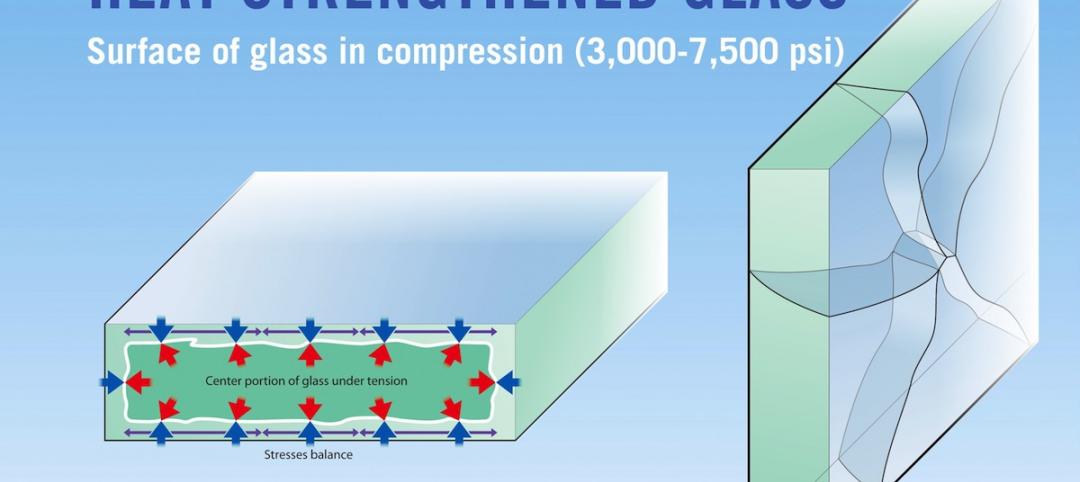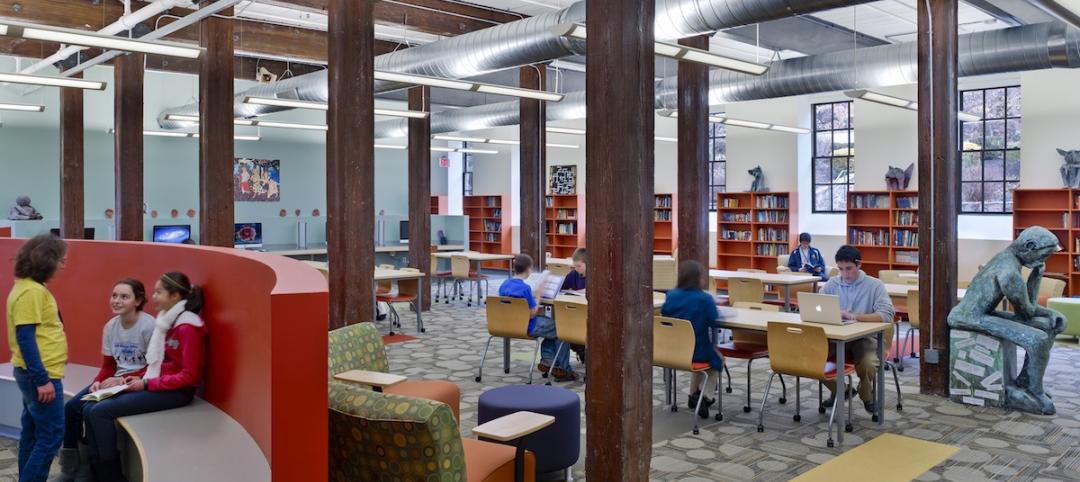SmithGroup has promoted office design and interiors expert Mark Adams to lead strategy and operations for its firmwide Workplace Practice. Adams succeeds Lise Newman, who will be retiring from practice in the Spring of 2022.
In his new role, Adams leads the firm’s practice devoted to the design of corporate and commercial facilities, including corporate headquarters and campuses, office interiors, commercial office buildings, public and civic development, hospitality, mixed-use and multi-family residential buildings for both public and private sector clients. Adams will focus on expanding the practice’s portfolio of major headquarters, mixed-use/urban development and workplace-centered strategy and design projects. Adams was elevated from Workplace Studio Leader at the firm’s Phoenix office.
“Real estate strategies and the design of office environments are evolving in response to recent world events,” says Mike Medici, SmithGroup’s president and managing partner. “Mark’s understanding of this rapidly changing landscape and his forward-thinking nature will serve SmithGroup well as we chart our new course to design a better future.”
Adams joined SmithGroup in 2008 and brings 33 years of experience to this position. He has been instrumental in the growth of the firm’s portfolio of notable clients, leading large-scale projects throughout the southwest and across the nation. As a recognized thought leader and author, Adams has been called upon to share his expertise as a presenter at conferences for CoreNet, the Society of Industrial and Office Realtors, NeoCon and Tradeline. He is also a regular contributor to Work Design Magazine.
SmithGroup’s Workplace Practice, ranked 7th in the nation according to Building Design + Construction magazine, provides comprehensive services that help premier companies create buildings and work environments that enhance engagement and improve their organizations’ financial performance. Notable clients include Microsoft, Google, GoDaddy, Advisory Board Company, General Motors, Ally Financial, Mercedes-Benz Financial Services and Chamberlain Corporation, among others.
“We’re at a unique point in time where discussions regarding equity, engagement, sustainability, wellbeing and human performance are reshaping the concept of work and the environments that we design to support it,” states Lise Newman. “Mark will be instrumental in solving these issues for top-tier clients while creating both beauty and value.”
Adams graduated from Harrington College of Design, earning a bachelor’s degree in interior design with a minor in fine arts. He also attended Iowa State University, focusing on architectural studies. A registered interior designer, he is a member of the International Interior Design Association.
Related Stories
| Feb 28, 2014
Six finalists selected in design competition for Canadian Holocaust monument
David Adjaye and Daniel Libeskind are among the finalists for the National Holocaust Monument, planned near the Canadian War Museum in Ottawa.
| Feb 27, 2014
Gensler reveals 44 design trends for the next decade
The 82-page report covers dozens of emerging trends in healthcare, commercial office, hospitality, tall buildings, and more.
| Feb 27, 2014
Target converts former prison dump into latest big-box store
Target's new San Rafael, Calif., location was built on the site of the former San Quentin prison dump.
| Feb 27, 2014
Open or private offices? It depends on the business plan
Open layouts are grabbing headlines as a hallmark of the new workplace—think the Google campus or Facebook's headquarters. And for smaller-scale operations, open designs are often lauded for being less expensive than private office plans. But does that mean all offices should have an open layout?
| Feb 27, 2014
3 reasons to apply computational fluid dynamics on your next project
From right-sizing mechanical systems to understanding the impact of design alternatives, CFD offers a host of benefits for the Building Team.
| Feb 27, 2014
12 facts about heat-treated glass: Why stronger isn’t always better
Glass is heat-treated for two reasons: the first is to increase its strength to resist external stresses such as wind and snow loads, or thermal loads caused by the sun’s energy. The second is to temper glass so that it meets safety glazing requirements defined by applicable codes or federal standards.
| Feb 27, 2014
Metal Construction Association introduces two Environmental Product Declarations
Two Environmental Product Declarations (EPD), one for Metal Composite Material Panels and one for Roll Formed Steel Panels for Roofs and Walls, are now available free of charge from the Metal Construction Association (MCA) on its website.
| Feb 27, 2014
Bluebeam Software launches Revu 12 for better field-ready document management and project collaboration
The latest version of the company’s flagship solution better enables users in document-intensive industries to digitally collaborate on project documents and more easily connect the office to the field.
| Feb 27, 2014
PocketCake lunches CPU designed for virtual reality simulations
The company's Virtual Reality Simulation Converter Assembly is three times more powerful than the average high-performance computer and allows for up to eight people to experience a virtual reality simulation at the same time.
| Feb 26, 2014
Adaptive reuse project brings school into historic paper mill
The project features nontraditional classrooms for collaborative learning, an arts and music wing, and a technologically sophisticated global resource center.

















